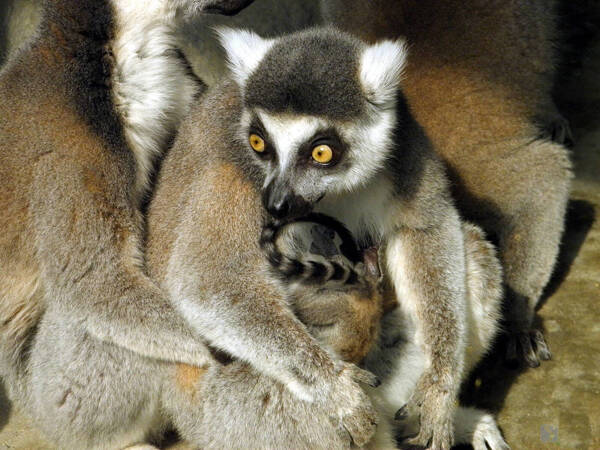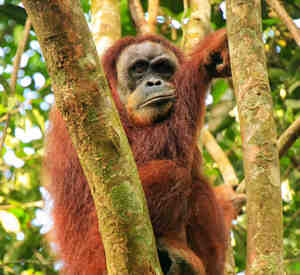Lepilemur leucopus,
IUCN
LCBasic Information
Scientific classification
- name:Lepilemur leucopus,
- Scientific Name:Lepilemur leucopus,White-footed monkey, boxing monkey,White-footed ferret lemur
- Outline:Primates
- Family:Lemuridae
Vital signs
- length:25-30cm
- Weight:500-700g
- lifetime:No verification information
Feature
It is named after its four white legs. It is extinct.
Distribution and Habitat
White-footed ferret lemurs live in southern Madagascar, Africa.
Appearance
The white-footed ferret lemur is 25 to 30 centimeters long, with a tail length of 22 to 26 centimeters and a weight of 500 to 700 grams. It has a bare snout and large eyes with a gray-brown area around the eyes. The back hair is mainly gray, the shoulders and forelimbs are brown, and the belly is grayish white. The tail is relatively long. The most obvious feature is that all four of its feet are white, hence the name white-footed ferret lemur.
Details
The scientific name of the white-footed ferret lemur is Lepilemur leucopus, which belongs to the lowest primitive monkey. It has evolved for nearly 30 million years, and it can be said that they are the slowest evolving primates.

The white-footed ferret lemur is a nocturnal animal. When the weather is very hot during the day, they sleep in the shade of trees or tree holes, and come out to look for food at night. They feed on plant leaves, flowers, etc., and their living range is very narrow. They never easily leave the foraging territory on which they depend for survival, and only stay within a radius of more than ten meters of the nest. However, this does not mean that they are lazy or slow. On the contrary, they are very agile and good at jumping. In order to make rational use of the food in the territory, they use vertical jumping to move in the forest. They jump with both legs together to make a trigger-type propulsion, rising and stopping suddenly without sweating or panting. They transmit signals visually. If an invader visits, both sides will glare at each other, and when one moves a little, the other will do the same. This "eye for an eye" behavior of declaring ownership of the territory through visual means is rare among primates. If the invasion of each other's territory reaches a climax, they will also fight and hit each other like boxers. Therefore, white-footed ferret lemurs are also known as "boxers".
White-footed ferret lemurs mate from May to July every year, with a gestation period of 120 to 150 days and a reproductive period of September to November. Each litter has one baby, and the baby monkey can move independently after 30 days. The mother monkey often holds the baby monkey in her mouth when jumping in the forest.
Although white-footed ferret lemurs are known as boxers, their fists did not stop the bad behavior of European invaders. In the 16th century, European colonial rulers entered Madagascar and began to hunt all kinds of wild animals unscrupulously, and also cut down forests in large quantities at will, which dealt a fatal blow to white-footed ferret lemurs. Due to large-scale hunting and loss of living environment, white-footed ferret lemurs are becoming less and less. When entering the 20th century, when humans began to want to protect these unique and rare wild animals on the island of Madagascar, it was too late. I don't know when it has all become extinct.
Protect wild animals and stop eating wild game.
Maintaining ecological balance is everyone's responsibility!








